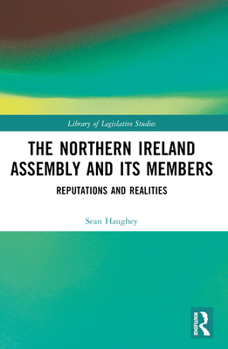The Northern Ireland Assembly: Reputations and Realities
Northern Ireland's power- sharing Assembly is understudied in the legislative studies literature. Having been suspended (or de facto suspended) for around 40% of its existence, conversation has tended to focus more on the wider political problems in which the Assembly has been enmeshed and less on its day-to-day functions as a legislature.
This book is the first to examine how the Assembly fulfils the four core functions of a legislature: representation, linkage, scrutiny, and policy- making. Using Members of the Legislative Assembly (MLAs) as the primary unit of analysis, the book explores: who and how MLAs represent; their approach to cultivating links with constituents; their use of parliamentary scrutiny tools; and their contribution to law- making. The book grounds its analysis in original data sourced from elite interviews, surveys, parliamentary questions, legislation, and the Official Report of parliamentary proceedings. Readers will therefore be able to reflect on whether the Assembly's (often poor) reputations comport with empirical realities. This book contributes to debates in the legislative studies and consociational power- sharing literatures, and will be of interest to students and scholars of parliaments, devolution, and Northern Ireland politics.Format:Paperback
Language:English
ISBN:1032562390
ISBN13:9781032562391
Release Date:December 2024
Publisher:Routledge
Length:166 Pages
Weight:0.58 lbs.
Dimensions:0.4" x 6.1" x 9.2"
Customer Reviews
0 rating





